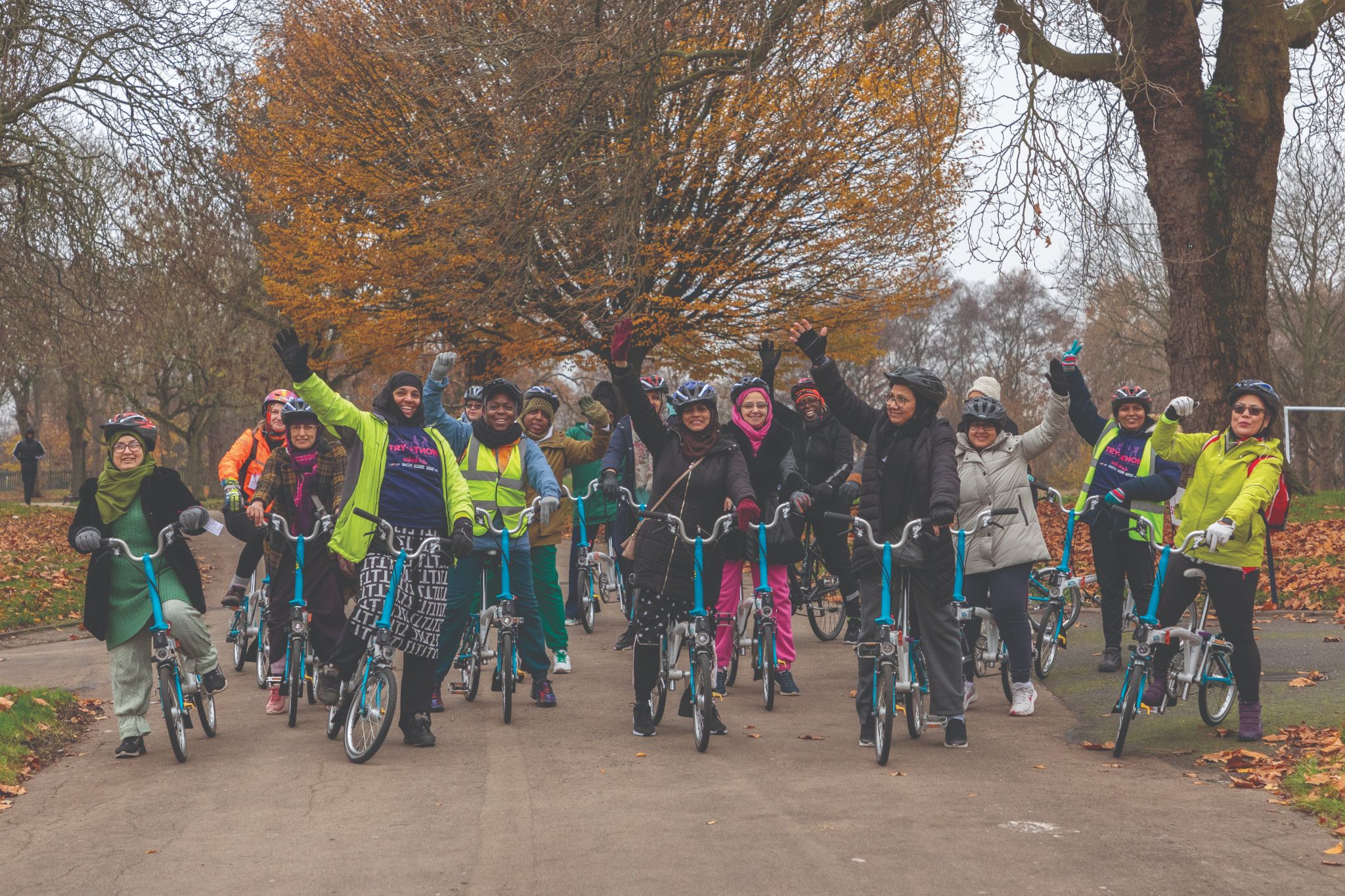
Not enough is done to tackle the social and economic barriers to cycling in the UK, an MP has said, as a report into social justice in active travel is published.
There is a "very significant lack of social justice within active travel", the report from the All Party Parliamentary Group for Cycling & Walking (APPGCW), released on Thursday, said.
Olly Glover, Liberal Democrat MP for Didcot and Wantage, and a member of the APPGCW, told Cycling Weekly: "There is a lot of socio-economic variation in who walks, cycles and wheels at the moment, and we really don’t tackle those barriers.
"We’re missing out on a huge opportunity to reduce congestion, to reduce urban air pollution, and to get people healthy. That’s why action is needed."
The report, based on an inquiry, makes nine recommendations:
- Reduce financial barriers to cycling
- Tackle pavement parking
- Data collection to enable sound monitoring and evaluation
- Ensure UK-wide access to free cycle training, and widen its reach
- Make Inclusive Mobility a minimum standard for designing infrastructure
- Effective and meaningful involvement of interest groups in policy development
- Enable the most effective community-based organisations to maximise their impact
- Build social justice into performance management in local transport
- Remove access control barriers from public cycleways, footpaths, parks, and other amenities; strengthen action against anti-social use of motorcycles
It was written by Dr Tom Cohen and Dr Ersilia Verlinghieri of the University of Westminster’s Active Travel Academy, and supported by British Cycling and Leigh Day.
"We need to do more to understand why people from ethnic minorities cycle less, why women cycle less," Glover said. "It’s important to engage with these communities and the organisations that represent them. That’s why this report talks about the importance of engaging with those interest groups so that we are informed, and representing those groups in policy development and designing local schemes."
Reducing financial barriers to cycling comes into reform of the Cycle to Work scheme - the report suggests calling it "Cycle for Health".
"The Cycle to Work scheme works really well for a lot of people," Glover explained. "There is clear evidence from studies of it that it has made a big impact. But, it’s not open to everybody, and that’s the key challenge. It’s not open to people on lower incomes, the self-employed, and pensioners, and if it was then we could bring the benefits of cycling to a wider group of people."
"Walking, cycling and wheeling, unlike virtually all other forms of transport, have the ability to solve so many problems," he argued. "They are enablers of economic activity, they are the only form of transport which simultaneously also reduce carbone emissions and reduce air pollution at a very low cost, and they help our cardiovascular and mental health too."
The report reads: "Active travel really should be for everyone. But it isn’t. As we show in this report, the benefits of active travel are experienced very unevenly. That was the catalyst for this inquiry: beyond the general issues of justice that attend active travel identified above, there is a very significant lack of social justice within active travel. Many groups, such as children, Disabled people, women and people from minority ethnic backgrounds, face greater barriers to active travel, and are therefore under-represented among those who walk, wheel and cycle in the UK.
"We should all feel a moral obligation to respond to this: it is not acceptable that so many people feel excluded from something so positive. We must also recognise the potential practical benefits of doing so: if all groups did as much active travel as those who face the fewest barriers, that would represent a massive shift in the right direction."







